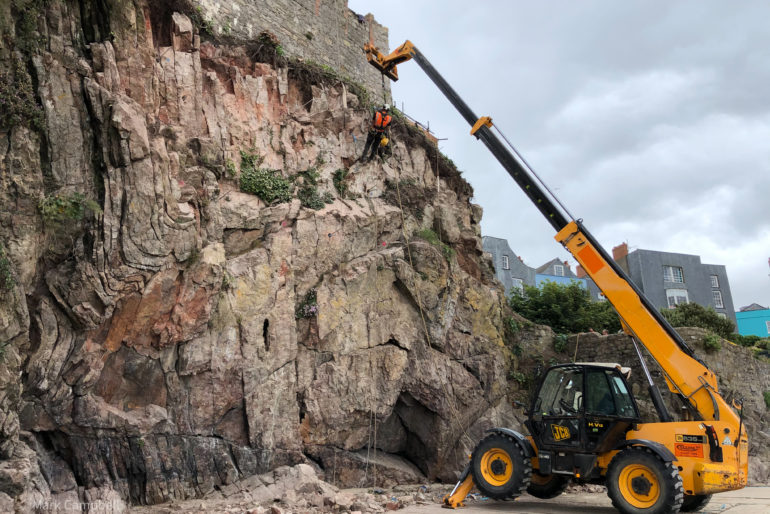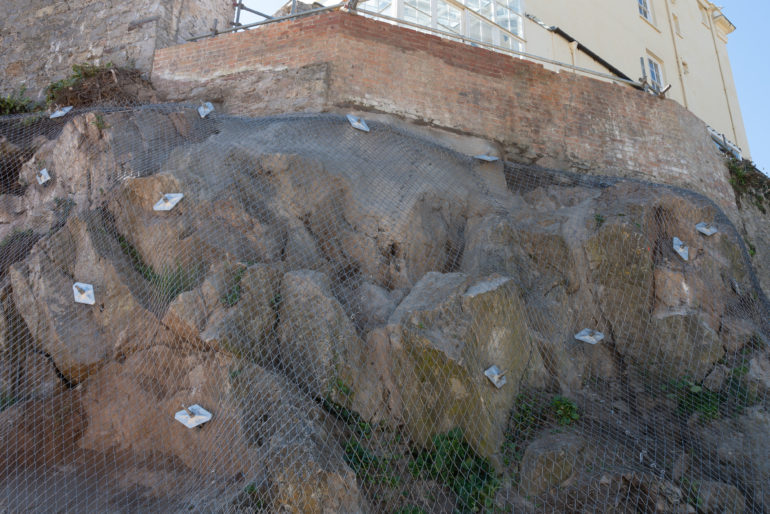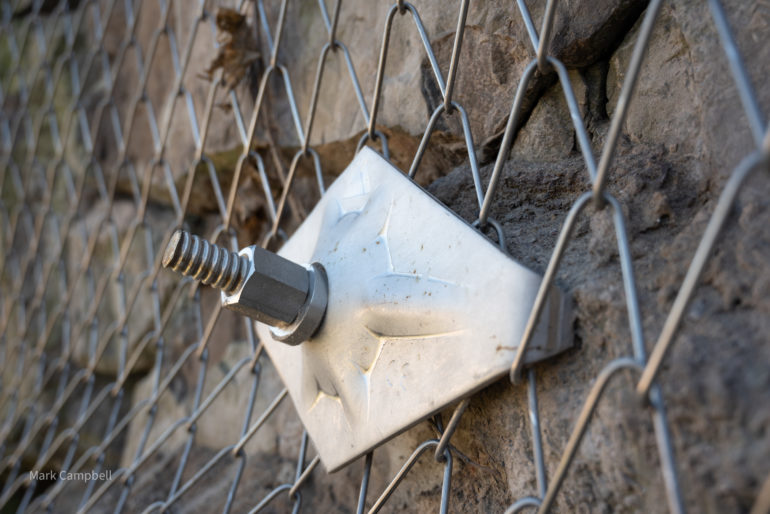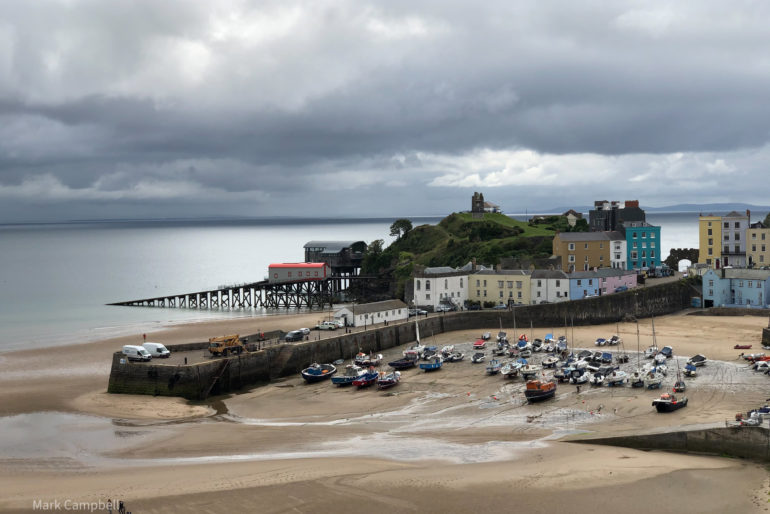Occupying a commanding position above Castle Beach in Tenby a listed property was recently purchased by a local family and a programme of sympathetic renovations undertaken, restoring the house using traditional techniques.
Jubb were asked to undertake a survey of a cliff face on which the house and its exterior walls are founded. A scheme of remedial works was proposed to stabilise the cliff and provide rockfall hazard protection to users of the beach below.
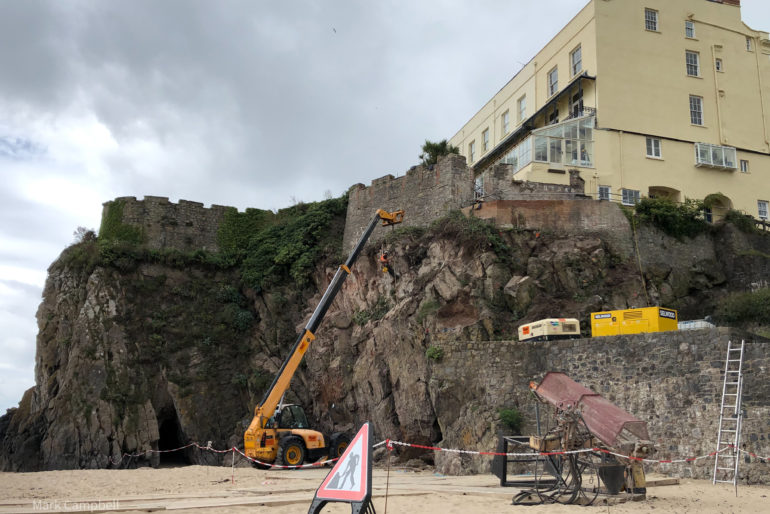 1 / 5
1 / 5 2 / 5
2 / 5 3 / 5
3 / 5 4 / 5
4 / 5 5 / 5
5 / 5
The upper half of the cliff had deteriorated over time through natural processes of weathering and root-jacking caused by vegetation growth.
Following an initial phase of work to remove loose rock and cut back vegetation, several ‘Gulls’ were revealed. These are wide open joints in the rock face that form towards the edge of an escarpment through a process known as ‘Cambering’. In time, root-jacking and gravitational toppling would have allowed large blocks to fall, gradually receding the cliff-line and undermining the masonry walls above.
After considering a number of options, a scheme of rock bolting and face netting was developed using high-quality stainless steel components. This was to ensure the longevity of the face stabilisation works and to minimise their visual impact. The ‘Gull’ features were secured with rock bolts and open joints packed with a lime based mortar. The architect and owners were closely involved during the design process and consultations were undertaken to ensure the proposed work was acceptable.
Jubb worked closely with iBex Technical Access, a contractor who specialises in rock face stabilisation and the maintenance of historic structures. Much of the face drilling was undertaken from Castle Beach itself, using a combination of telescopic boom mounted drilling equipment operated by roped access technicians. Access to the beach was gained using timber matting, with all equipment withdrawn during spring tides.
During the drilling operations, an area of loose friable rock was identified that could have undermined a stone masonry wall built directly above. This required a quick response and a solution was developed employing a small patch repair applied by the dry spray-concrete technique.
Jubb’s Ground Engineering team specialise in the field of ‘geo-hazards’, regularly taking on rock and soil slope stabilisation projects.
